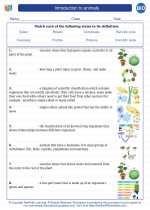Understanding Slugs
Slugs are a type of mollusk belonging to the class Gastropoda. They are similar to snails but lack an external shell. Slugs are hermaphroditic, meaning they have both male and female reproductive organs. They are found in diverse habitats ranging from gardens to forests and play an important role in the ecosystem as decomposers.
Anatomy of a Slug
Slugs have a soft, elongated body with a distinct head and tentacles. They move by secreting mucus, which allows them to glide along surfaces. Some species of slugs have a small vestigial shell, while others have no shell at all.
Reproduction and Life Cycle
Slugs reproduce through internal fertilization. After mating, they lay eggs in moist environments. The eggs hatch into juvenile slugs that undergo a process of metamorphosis to reach adulthood. The life span of a slug can vary depending on species and environmental factors.
Ecological Role
Slugs are important decomposers, feeding on decaying plant matter and contributing to nutrient cycling in ecosystems. However, they can also be considered pests in agricultural settings, as they have a voracious appetite for a wide range of plants.
Study Guide
- Describe the anatomy of a slug, including its unique features.
- Explain the reproductive process of slugs, including how they reproduce and the life cycle of their offspring.
- Discuss the ecological role of slugs in their natural habitat and their impact on agricultural ecosystems.
- Compare and contrast slugs with other gastropods, such as snails, in terms of their physical characteristics and behavior.
[Slugs] Related Worksheets and Study Guides:
.◂Biology Worksheets and Study Guides High School. Introduction to animals
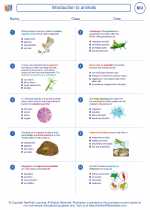
 Worksheet/Answer key
Worksheet/Answer key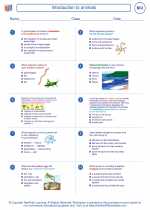
 Worksheet/Answer key
Worksheet/Answer key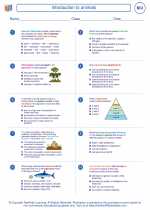
 Worksheet/Answer key
Worksheet/Answer key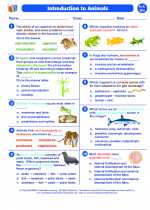
 Vocabulary/Answer key
Vocabulary/Answer key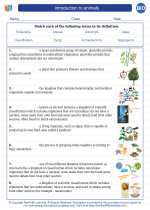
 Vocabulary/Answer key
Vocabulary/Answer key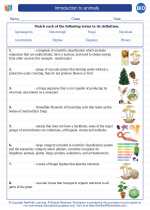
 Vocabulary/Answer key
Vocabulary/Answer key